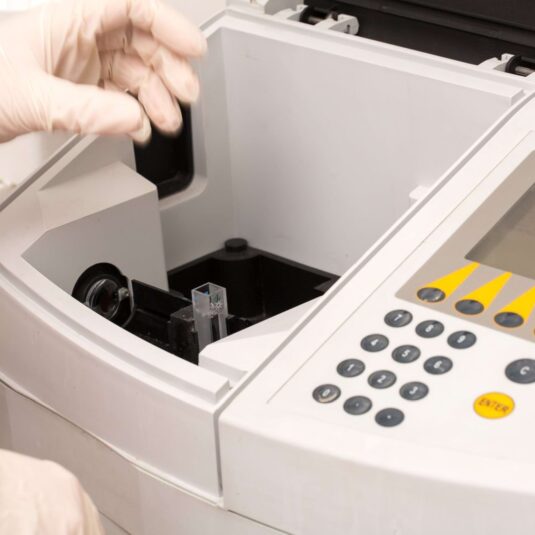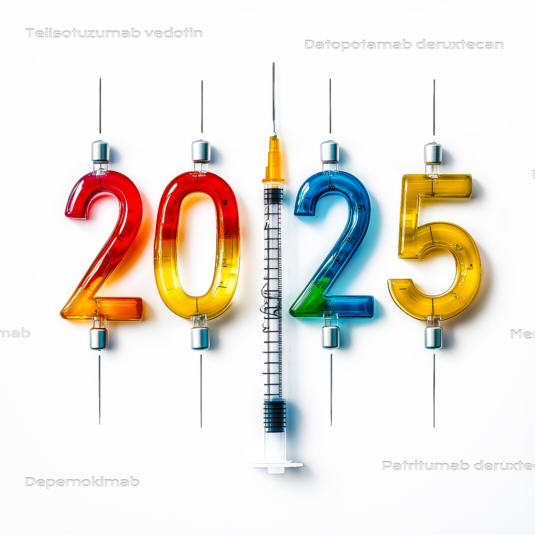Does Your CDMO Have An Analytical Edge?
Analytics, Biosimilars, Mabion

Strong CDMO analytics are the backbone of the drug manufacturing industry. Without analytical data supporting the efficacy and safety of a drug, there would be no clinical trials, and as a result, innovative therapeutics could not reach patients in need. Global regulators rely heavily on robust analytical data from the laboratory level through cGMP manufacturing to ensure that a drug is safe for patient use, and as drug sponsors aim to provide thorough filings for regulators, it is important to look closely at prospective CDMOs and their analytics offerings.
An experienced CDMO will not only offer analytical technology, but the data mastery needed to anticipate regulatory requests associated with your biologic. By partnering with a CDMO that offers the knowledge and technology needed to support your biologic throughout its full life cycle, your drug is better positioned toward regulatory success and primed to reach patients safely and efficaciously.
Leverage Analytics From Start To Finish
Due to the complexity of biologics, precise technology is instrumental to ensuring the highest standards of quality, safety, and regulatory compliance at every step of the drug development life cycle. Consider the critical role of analytical technology in each of the following phases.
Methods Development And Optimization
At the outset of a project, a CDMO must identify a molecule’s critical quality attributes (CQAs) and as the manufacturing process is developed, the critical process parameters (CPPs) that impact CQAs. Optimal analytical methods to monitor and control those attributes throughout all stages of drug development need to be established. A CDMO will look at a variety of techniques to determine which methods prove most suitable for their intended use.
Based on risk analysis findings to identify the CQAs, a CDMO develops an analytical target profile (ATP), which details each analytical method and its intended purpose. At the stage of laboratory work, all efforts focus on meeting the requirements defined in the ATP. This usually includes assessing how method variables impact its performance. Several key activities are also conducted during method development/optimization to set the foundation for successful validation. Robustness studies, supported by Design of Experiments (DoE), are highly recommended to identify critical method parameters early and establish their acceptable ranges.
Additionally, a CDMO may assess method attributes such as accuracy, precision, and specificity during the early phases of development, ensuring that the method is well-characterized and ready for subsequent stages.
Drug Characterization
In-depth knowledge of a product’s molecular structure, physicochemical properties, and functional characteristics is needed for drug characterization. Relevant analytical studies also include comparability studies, analytical similarity evaluation for biosimilars, reference standard characterization, and impurity profiling. The more robust the evidence gathered in the laboratory via in vitro testing for an innovative drug or biosimilar candidate (with support of the clinical evidence), the higher likelihood of approval at the marketing authorization stage. The extent of characterization necessary depends on the stage of drug development.
Method Validation
For formal validation, a CDMO should offer an ICH- and GMP-compliant method validation process to ensure quality and alignment with specifications. A thorough analytics validation measures parameters such as accuracy, precision, linearity, limit of detection (LOD)/ limit of quantification (LOQ), specificity, and robustness to ensure that each method is reliable, reproducible, well-suited for its intended purpose, and compliant with all relevant regulatory and pharmacopeial guidance. Acceptance criteria for those parameters are defined in validation protocol and verified during the validation conduct. In addition, system suitability criteria fulfillment is checked to assure reliable method performance in routine use.
In-Process Testing
To ensure control at every stage of the process, a CDMO conducts routine in-process quality control testing to maintain consistent product quality. Real-time monitoring and testing during key stages of production are used to evaluate parameters such as content, purity/impurities, and potency. Monitoring these CQAs helps ensure a consistent and efficient process while minimizing risks and identifying potential issues early. Furthermore, it supports process validation and continuous process verification.
GMP Release Testing
This stage is guided by GMP and ICH requirements and is specific to the product type. A CDMO should offer a broad range of release testing methods that cover drug substance and drug product. These tests ensure that your biologic product is well-suited for clinical trials or commercial distribution. Batch release testing should include chemical, physical, and biological tests, as well as microbiology methods and identity tests, as needed. These tests ensure that every batch meets predefined quality standards and regulatory requirements before release.
Stress Studies And GMP Stability Testing
It is vital to simulate real-world environmental exposure and stress factors that a drug may encounter during manufacturing, storage, and transportation to predict potential drug degradation pathways. Therefore, stress studies can be conducted at a CDMO. For biosimilar candidate drugs, forced degradation studies are also a means of assessing similarity with the reference product, by comparing the degradation profiles of the tested material with the reference product. GMP stability studies assess a drug product’s shelf life under actual storage conditions and elevated temperatures, as defined in Q1A and Q5C guidelines. To conduct stability studies, a CDMO recommends the analytical method panel and timepoints for testing.
Evaluate CDMO Analytics Capabilities
To position your drug toward success, prioritize finding a partner that has experience designing robust analytical panels that cover potency, purity, and microbial safety for biologics in the same class as your own. An established platform approach to analytics is also beneficial, as this allows a CDMO to start your project rapidly, leveraging their previous experience to customize platform methods to suit your molecule. Beyond that, seek out a CDMO that prioritizes collaboration between critical teams, including process development, analytics, manufacturing, and quality control. Consider if these key stakeholders are housed within the same facility; if so, they are better positioned to communicate and adapt to any challenges that arise.
With previous biomanufacturing experience, a CDMO understands how best to tailor an analytical panel to meet the needs of your molecule. Their team determines whether a given method provides the level of precision needed and ensures a method’s robustness. With this data, they determine whether the platform method works well or if further optimization is required. If an alternate method offers better sensitivity or resolution, a CDMO may advise implementing that method instead. However, if a client has a specific methodology preference, a CDMO will adapt to accommodate said method whenever feasible. Ultimately, the selected analytical panel should reflect the technology that best suits the product.
Beyond the ability to assemble a robust analytical panel and conduct analytical testing and characterization, experienced CDMO teams provide guidance on what regulators are looking for at different stages. A CDMO will consult your product dossier and any previous discussions you have had with regulators to ensure all relevant regulatory guidelines are satisfied. Throughout workflows, they will maintain compliance with relevant regulatory requirements, including GMP and ICH. If you have questions about how to interpret certain guidelines, a CDMO with previous regulatory experience will provide informed insight.
Enlist Cutting-Edge Analytical Techniques And Approaches
To provide the best possible analytics panel for your biotherapeutic, a CDMO should be versed in the most innovative analytical technologies. This includes, first and foremost, mass spectrometry. Mass spectrometers enable analysis of different attributes congruent with protein-based drugs. With experience, a CDMO can use mass spec to analyze proteins at various levels, ranging from the intact protein (top-down approach) to the peptide level (bottom-up approach), depending on the particular needs. Mass spec is most commonly used to conduct identity testing via primary sequence confirmation or to examine protein modifications, such as oxidation, deamidation or glycosylation in mAbs. For these analytics purposes, mass spec is mostly coupled with chromatographic techniques. Another powerful technique which can be integrated with mass spec detection is capillary electrophoresis, which separates molecules based on size and charge, allowing accurate identification of the impurities.
Beyond physicochemical and structural testing, in-vitro potency evaluation plays a crucial role, requiring the implementation of various methodologies and cutting-edge approaches. This can be achieved by evaluating the interaction between a molecule of interest and its molecular target, or by assessing the effect at the cellular level. For binding assessment, different techniques such as ELISA, flow cytometry or surface plasmon resonance could be applied, each offering distinct advantages – ranging from a general overview and potency comparison to detailed kinetics and affinity data on the binding event.
Cell-based assays can be used from the earliest phases of development and are highly beneficial due to their ability to closely mimic what happens within the human body. For innovator drugs, cell-based in-vitro assays are crucial to assess impact on a structural level and provide evidence to support early clinical trials. These tests are also leveraged for release potency testing and characterization studies, for both innovator and biosimilar drugs.
A growing trend in biotech is minimizing sample volume for analysis, particularly in the early stages of research and biologics development, where sample availability is often limited. This focus extends to bioanalytics during clinical studies (also feasible at a CDMO), where small sample volumes are advantageous from a clinical point of view for pharmacokinetics, pharmacodynamics, and immunogenicity characterization. Advanced technologies, including microfluidic systems like the Gyrolab xPlore, address these needs by enabling efficient, high-precision analysis while conserving valuable samples, supporting applications across both early research and later-stage studies.
Another widespread trend across various industries is the integration of artificial intelligence (AI) and automation. The key focus is identifying where and how these technologies can be effectively applied to enhance efficiency, streamline processes, and drive innovation. While these tools offer exciting possibilities, it is important to leverage them in compliance with the requirements of regulatory authorities, who, in many cases, are still adapting to an evolving technological landscape. Though it may be challenging to validate usage in a GMP environment, AI and automation could allow for higher throughput at R&D stages. Nevertheless, a CDMO must consider significant investments in time, effort, and human resources, including experts in programming and bioassays, to ensure that automated methods are effectively implemented. Therefore, the automation for high-throughput testing is usually considered where sample load is substantial.
Choose Wisely
Though analytics are ubiquitous across the drug development and manufacturing landscape, it is vital to identify a CDMO with the right analytical technology and experience to prepare your drug for clinical trials and eventual commercialization. If you are unsure of where to begin, familiarize yourself with the critical analytical offerings of a CDMO, key innovative technologies, and consider the importance of previous regulatory experience.
Contact us if you’d like to see what a comprehensive panel of analytical services looks like.
Prepared by:
Anna Małecka
Paulina Toboła
Related resources

UV-VIS Spectrometry for Protein Concentration Analysis: Principles and Applications
Analytics, Biologics, Proteins

Qualitative analysis of Host Cell Proteins using mass spectrometry
Analytics, Drug development, Drug product, Drug substance

Innovative biologics – expected drug approvals in 2025
Antibody-drug conjugates, Biologics, Bispecific antibody, Clinical trials, EMA, FDA, Monoclonal antibody, Vaccines